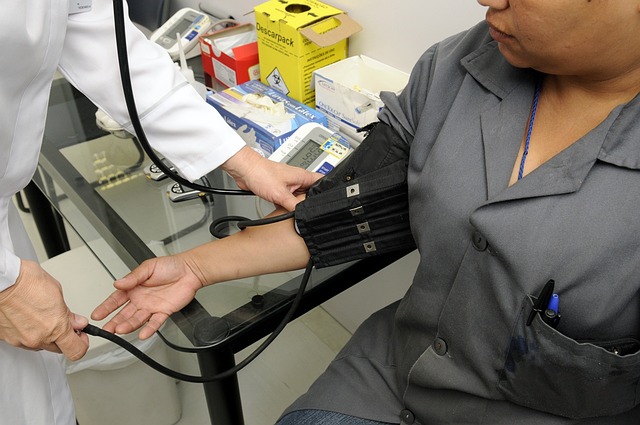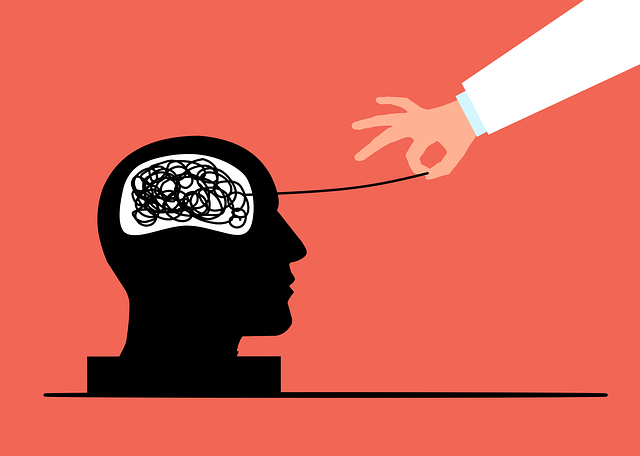Chronic depression, lasting over two years, requires a thorough diagnosis by healthcare professionals who identify symptoms like sadness, hopelessness, appetite changes, fatigue, and suicidal thoughts. Depression treatment programs traditionally emphasize psychotherapy, with Cognitive-Behavioral Therapy (CBT) and Interpersonal Therapy (IPT) as effective methods to challenge negative thought patterns and improve relationships. Specialized approaches like Mindfulness-Based Cognitive Therapy (MBCT) offer additional support. Personalized programs, tailored through collaborative assessments, incorporate evidence-based therapies, ongoing therapy, medication adjustments, and lifestyle changes to prevent relapse and promote long-term well-being.
Depression, particularly chronic forms, can significantly impair daily functioning. Understanding chronic depression involves recognizing persistent symptoms like low mood, loss of interest, and fatigue that last for at least two years. This article delves into comprehensive depression treatment programs, focusing on the role of psychotherapy. We explore traditional approaches, various types of therapy including CBT, IPT, and MBCT, and strategies for creating personalized plans and preventing relapse. Effective management of chronic depression involves a multi-faceted approach, with psychotherapy playing a pivotal role in restoring mental well-being.
Understanding Chronic Depression: Symptoms and Diagnosis

Chronic depression, also known as persistent depressive disorder, is a long-lasting form of depression that can significantly impact an individual’s daily life and overall well-being. Unlike major depressive episodes that may come and go, chronic depression persists for at least two years, with symptoms remaining consistent or recurring frequently. Understanding this condition is crucial in recognizing when professional help is needed.
Diagnosis involves a comprehensive evaluation by a qualified healthcare provider or therapist. They will assess various symptoms, including persistent feelings of sadness, hopelessness, loss of interest in activities once enjoyed, changes in appetite and sleep patterns, fatigue, difficulty concentrating, and recurrent thoughts of death or suicide. These symptoms must be present for an extended period and significantly affect daily functioning to meet the diagnostic criteria for chronic depression. Recognizing these signs is a vital step towards seeking effective depression treatment programs.
Traditional Approaches to Treating Depression

Depression, a persistent and profound sense of sadness, has long been a focus of medical attention, leading to various traditional approaches in its treatment. Historically, psychotherapy has been a cornerstone of depression treatment programs, offering techniques to help individuals manage their symptoms through talk therapy. This often involves exploring past experiences, identifying negative thought patterns, and developing healthier coping strategies.
Common therapeutic methods include cognitive-behavioral therapy (CBT), which aims to alter unhelpful thinking and behavior, and interpersonal therapy, focusing on improving relationships and social interactions. While these traditional methods have shown effectiveness, the field of mental health continues to evolve, incorporating new insights and techniques to enhance depression treatment programs.
The Role of Psychotherapy in Depression Treatment Programs

Psychotherapy plays a pivotal role in comprehensive depression treatment programs, offering evidence-based approaches to address underlying emotional and cognitive distress. Through various therapeutic techniques, individuals can gain insights into their thought patterns, emotions, and behaviors, fostering positive changes that may have been elusive through medication alone.
In the context of depression treatment programs, psychotherapy provides a safe space for exploration. It equips patients with coping strategies, enhances self-awareness, and promotes healthier ways of managing symptoms. By engaging in therapy, individuals can navigate complex emotional landscapes, challenge negative thought cycles, and develop resilience, ultimately leading to improved overall well-being.
Different Types of Psychotherapy for Chronic Depression

When it comes to addressing chronic depression, psychotherapy stands as a robust tool within the realm of mental health care. This therapeutic approach offers a wide array of techniques tailored to meet individual needs, with each method focusing on distinct aspects of healing. One such evidence-based method is cognitive behavioural therapy (CBT), which has proven effective in challenging negative thought patterns and promoting healthier behaviour. CBT for depression involves identifying and modifying distorted thinking, thereby improving mood and overall well-being.
Another notable psychotherapy approach is interpersonal therapy (IPT), designed to help individuals understand and improve their relationships. By exploring social interactions and addressing issues like loneliness or conflict, IPT can be a powerful depression treatment program. Additionally, psychodynamic therapy delves into unconscious processes and past experiences, aiming to resolve underlying conflicts that may contribute to ongoing symptoms of depression. This holistic approach considers the interconnectedness of mind, body, and environment in fostering healing and recovery.
Benefits of Cognitive Behavioral Therapy (CBT)

Cognitive Behavioral Therapy (CBT) is a highly effective depression treatment program that focuses on identifying and changing negative thought patterns and behaviors contributing to chronic depression. By challenging and replacing maladaptive thoughts with more realistic, positive ones, CBT empowers individuals to manage their symptoms and improve overall well-being. This evidence-based therapy has been extensively researched and proven successful in alleviating depression, anxiety, and related conditions.
One of the key advantages of CBT is its ability to equip individuals with practical coping strategies for managing depressive episodes. Through structured sessions, clients learn to recognize and challenge cognitive distortions, such as all-or-nothing thinking or catastrophizing. This process facilitates a more balanced perspective, leading to improved mood regulation and enhanced resilience in the face of life’s challenges. CBT also promotes active participation in one’s recovery, fostering a sense of empowerment and self-efficacy.
Exploring Other Effective Therapies: Interpersonal Therapy (IPT), Mindfulness-Based Cognitive Therapy (MBCT)

For individuals seeking effective depression treatment programs, exploring specialized psychotherapy approaches can offer valuable alternatives. Interpersonal Therapy (IPT) focuses on improving relationships and social skills, addressing the impact of interpersonal issues on mental health. This therapy type is particularly beneficial for those experiencing depression stemming from problems in personal relationships or social situations. By learning to communicate more effectively, individuals can reduce symptoms of depression associated with conflict or loneliness.
Mindfulness-Based Cognitive Therapy (MBCT) combines cognitive behavioral therapy principles with mindfulness practices. It equips individuals with tools to manage depressive thoughts and emotions while cultivating present-moment awareness. MBCT is highly effective in preventing relapse, especially for those who have experienced recurring depression. Through regular meditation and cognitive reframing exercises, individuals can develop a healthier relationship with their thoughts, fostering resilience against chronic depression.
Creating a Personalized Treatment Plan with a Mental Health Professional

Creating a personalized treatment plan is a collaborative process between an individual and their mental health professional. This tailored approach acknowledges that chronic depression is unique to each person, requiring strategies that address specific needs, preferences, and challenges. During initial assessments, therapists evaluate symptoms, identify underlying causes, and discuss various evidence-based therapies effective in treating depression. By understanding the individual’s goals, fears, and coping mechanisms, they can design a program encompassing techniques such as cognitive-behavioral therapy (CBT), interpersonal psychotherapy (IPT), or mindfulness-based interventions.
The mental health professional plays a vital role in guiding the patient through each step, adjusting the treatment plan as needed. Regular sessions allow for progress monitoring, problem-solving, and skill refinement. This iterative process ensures that the depression treatment program remains effective and adaptable, fostering a sense of empowerment and self-care in managing chronic depression.
Long-Term Management and Prevention Strategies for Relapse

Depression treatment programs that focus on long-term management aim to equip individuals with coping strategies to prevent relapse. These programs often involve ongoing therapy sessions, medication adjustments, and lifestyle changes. Cognitive Behavioral Therapy (CBT), for instance, helps patients identify and challenge negative thought patterns, teaching them to manage symptoms effectively over time.
Additionally, building a strong support network is vital. This includes engaging in regular social activities, maintaining healthy relationships, and considering peer support groups. Regular self-care practices such as exercise, mindfulness meditation, and adequate sleep also play a significant role in preventing relapse, promoting overall well-being, and fostering resilience against depressive episodes.
